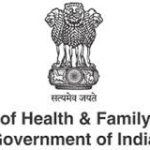Srinagar, July 27: Over Rs 387 crore worth of loans have been sanctioned in Jammu and Kashmir under the Stand-Up India Scheme since its launch.The scheme, which aims to promote entrepreneurship among Scheduled Castes (SC), Scheduled Tribes (ST), and women, has led to the sanctioning of 1,786 loans in the Union Territory till March 2025.As per the details available with Rising Kashmir, a total of 243 loans amounting to Rs 47.34 crore have been sanctioned to SC beneficiaries in J&K. Meanwhile, ST beneficiaries have received 255 loans worth Rs 51.20 crore. The highest number of loans, 1,288 in total, have been sanctioned to women entrepreneurs, amounting to Rs 288.57 crore.The Stand-Up India Scheme was launched in April 2016 with the aim of supporting at least one SC/ST and one woman borrower per bank branch for setting up a greenfield enterprise. The scheme facilitates bank loans between Rs 10 lakh and Rs 1 crore to help establish new ventures in manufacturing, services, trading, or agriculture-related sectors.Officials said the scheme has helped bridge the credit gap for underserved sections in J&K, particularly women and members of the tribal population who have limited access to formal banking. All loans under the scheme are backed with credit guarantee support and are offered at interest rates not exceeding base rate plus MCLR plus 3 percent along with applicable tenure premium.To qualify for a loan under the scheme, the borrower must be at least 18 years of age and not a defaulter to any bank or financial institution. In the case of non-individual enterprises, at least 51 percent of the shareholding and controlling stake must be held by either a SC/ST or a woman entrepreneur. The government has also simplified the application process and created online portals to facilitate access to credit. In tribal and remote areas of J&K, awareness campaigns and outreach programs have been conducted to encourage applications under the scheme.Though the overall number of beneficiaries in J&K is lower than in some of the larger states like Maharashtra, Uttar Pradesh, and Tamil Nadu, officials believe the consistent growth in participation from the UT reflects increasing awareness and accessibility of credit support in the UT.
Rs 387 cr worth loans sanctioned in J&K under Stand-up India scheme

Sign Up For Daily Newsletter
Be keep up! Get the latest breaking news delivered straight to your inbox.
By signing up, you agree to our Terms of Use and acknowledge the data practices in our Privacy Policy. You may unsubscribe at any time.
Leave a Comment Leave a Comment
Stay Connected
Latest News
Recent Posts
- No justification for PSA detention of MLA Mehraj Malik: CM Omar Abdullah
- “We fully respect Ashok Chakra, been misused by Waqf board Chairman,” NC MLA Tanvir Sadiq
- Syed Yasir hits stunning hole-in-one at Royal Springs Golf Course
- IGP Traffic assures priority movement of Fruit Trucks on NH-44
- J&K Govt notifies Speaker on PSA detention of Doda MLA Mehraj Malik







